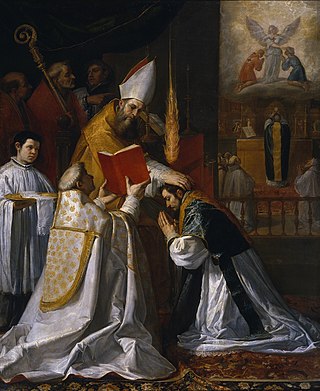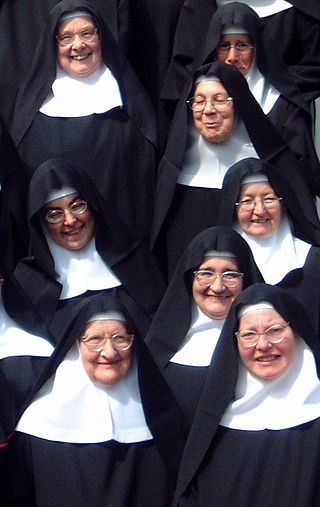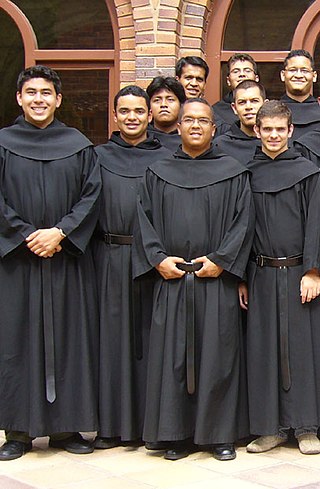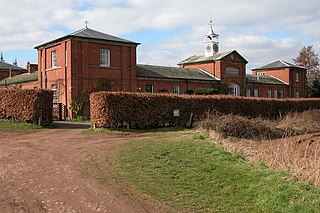
The Anglican Communion is the third largest Christian communion after the Roman Catholic and Eastern Orthodox churches. Formally founded in 1867 in London, the communion has more than 85 million members within the Church of England and other autocephalous national and regional churches in full communion. The traditional origins of Anglican doctrine are summarised in the Thirty-nine Articles (1571). The archbishop of Canterbury in England acts as a focus of unity, recognised as primus inter pares, but does not exercise authority in Anglican provinces outside of the Church of England. Most, but not all, member churches of the communion are the historic national or regional Anglican churches.
Anglicanism is a Western Christian tradition which developed from the practices, liturgy, and identity of the Church of England following the English Reformation, in the context of the Protestant Reformation in Europe. It is one of the largest branches of Christianity, with around 110 million adherents worldwide as of 2001.

Giovanni di Pietro di Bernardone, known as Francis of Assisi, was an Italian mystic, poet, and Catholic friar who founded the religious order of the Franciscans. Inspired to lead a Christian life of poverty, he became a beggar and itinerant preacher.

In certain Christian denominations, holy orders are the ordained ministries of bishop, priest (presbyter), and deacon, and the sacrament or rite by which candidates are ordained to those orders. Churches recognizing these orders include the Catholic Church, the Eastern Orthodox, Oriental Orthodox, Anglican, Assyrian, Old Catholic, Independent Catholic and some Lutheran churches. Except for Lutherans and some Anglicans, these churches regard ordination as a sacrament.

A nun is a woman who vows to dedicate her life to religious service and contemplation, typically living under vows of poverty, chastity, and obedience in the enclosure of a monastery or convent. The term is often used interchangeably with religious sisters who do take simple vows but live an active vocation of prayer and charitable work.

The Franciscans are a group of related mendicant religious orders of the Catholic Church. Founded in 1209 by the Italian saint Francis of Assisi, these orders include three independent orders for men, orders for nuns such as the Order of Saint Clare, and the Third Order of Saint Francis open to male and female members. They adhere to the teachings and spiritual disciplines of the founder and of his main associates and followers, such as Clare of Assisi, Anthony of Padua, and Elizabeth of Hungary. Several smaller Protestant Franciscan orders or other groups have been established since late 1800s as well, particularly in the Anglican and Lutheran traditions.

A friar is a member of one of the mendicant orders in the Roman Catholic Church. There are also friars outside of the Roman Catholic Church, such as within the Anglican Communion. The term, first used in the 12th or 13th century, distinguishes the mendicants' itinerant apostolic character, exercised broadly under the jurisdiction of a superior general, from the older monastic orders' allegiance to a single monastery formalized by their vow of stability. A friar may be in holy orders or be a non-ordained brother. The most significant orders of friars are the Dominicans, Franciscans, Augustinians, and Carmelites.

Christian monasticism is a religious way of life of Christians who live ascetic and typically cloistered lives that are dedicated to Christian worship. It began to develop early in the history of the Christian Church, modeled upon scriptural examples and ideals, including those in the Old Testament. It has come to be regulated by religious rules and, in modern times, the Canon law of the respective Christian denominations that have forms of monastic living. Those living the monastic life are known by the generic terms monks (men) and nuns (women). The word monk originated from the Greek μοναχός, itself from μόνος meaning 'alone'.

The term third order signifies, in general, lay members of Christian religious orders, who do not necessarily live in a religious community such as a monastery or a nunnery, and yet can claim to wear the religious habit and participate in the good works of a great order. Roman Catholicism, Lutheranism and Anglicanism all recognize third orders.

The Society of Saint Francis (SSF) is an international Franciscan religious order within the Anglican Communion. It is the main recognised Anglican Franciscan order, but there are also other Franciscan orders in the Anglican Communion.

The Episcopal Diocese of New York is a diocese of the Episcopal Church in the United States of America, encompassing three New York City boroughs and seven New York state counties. Established in 1785, it is one of the Episcopal Church's original dioceses. The current diocesan bishop is the Rt. Rev. Matthew Heyd, whose seat is at the Cathedral of Saint John the Divine.

Anglican religious orders are communities of men or women in the Anglican Communion who live under a common rule of life. The members of religious orders take vows which often include the traditional monastic vows of poverty, chastity and obedience, or the ancient vow of stability, or sometimes a modern interpretation of some or all of these vows. Members may be laity or clergy, but most commonly include a mixture of both. They lead a common life of work and prayer, sometimes on a single site, sometimes spread over multiple locations. Though many Anglicans are members of religious orders recognized by the Anglican Communion, others may be members of ecumenical Protestant or Old Catholic religious orders while maintaining their Anglican identity and parochial membership in Anglican churches.

The Anglican Church of Melanesia (ACoM), also known as the Church of the Province of Melanesia and the Church of Melanesia (COM), is a church of the Anglican Communion and includes nine dioceses in Solomon Islands, Vanuatu and New Caledonia. The Archbishop of Melanesia is Leonard Dawea. He succeeds the retired archbishop George Takeli.
The Anglican Order of Preachers is an Anglican religious order sometimes loosely referred to as "Dominicans".

Emerging since the 19th century, there are several Protestant adherent and groups, sometimes organised as religious orders, which strive to adhere to the teachings and spiritual disciplines of Saint Francis of Assisi.
The Little Brothers of Francis are one of the family of Franciscan orders in the Anglican Communion. They are based in New South Wales, Australia.

Chiara Offreduccio, known as Clare of Assisi, is an Italian saint who was one of the first followers of Francis of Assisi.
A Religious Brother is a lay member of a religious institute or religious order who commits himself to following Christ in consecrated life of the Church, usually by the vows of poverty, chastity and obedience. Equivalent to a Religious Sister, he usually lives in a religious community and works in a ministry appropriate to his capabilities.
The following outline is provided as an overview of and topical guide to the Catholic Church:
Former religious orders in the churches of the Anglican Communion are those communities of monks, nuns, friars, or sisters, having a common life and rule under vows, whose work has ended and whose community has been disbanded. In a very few cases this is due to the termination of the work for which the community was established, but in most cases it is due to amalgamation or the death of the final remaining member of the community.














